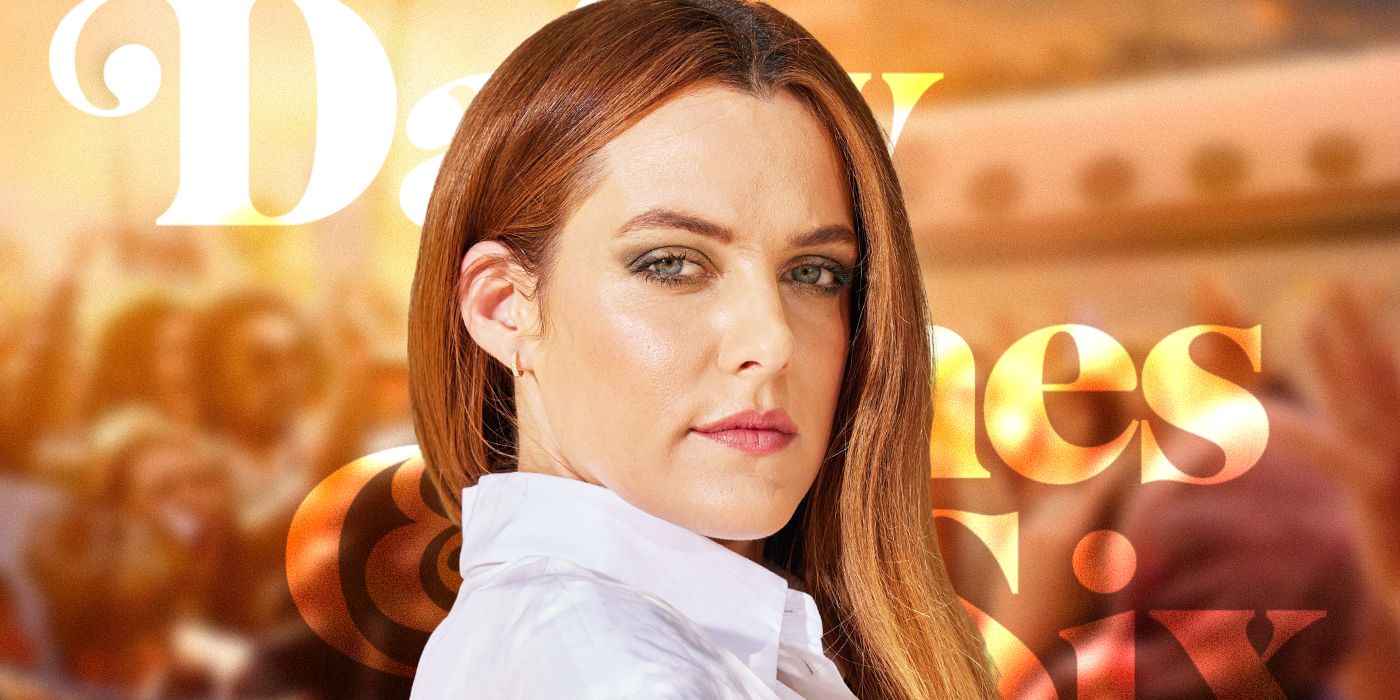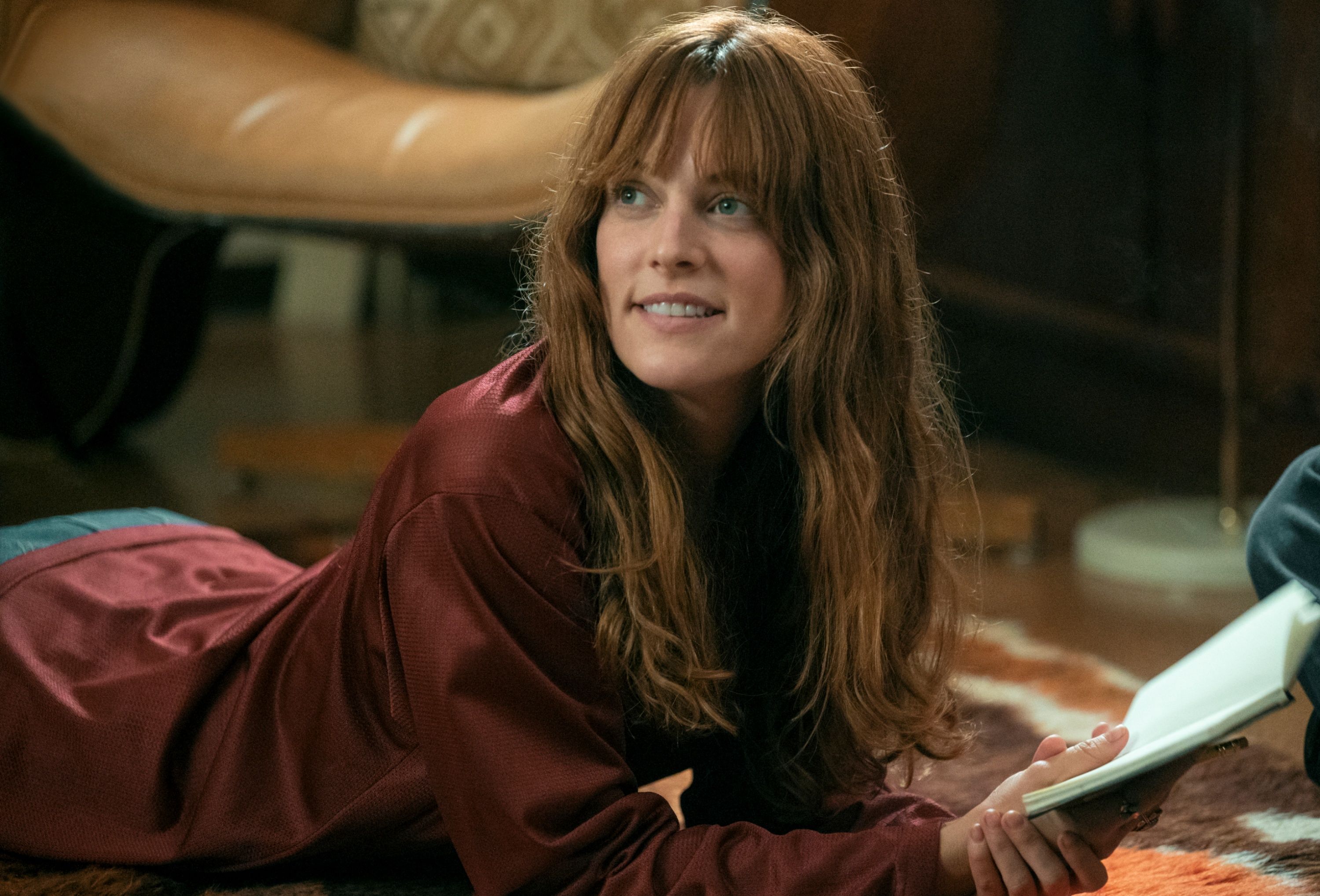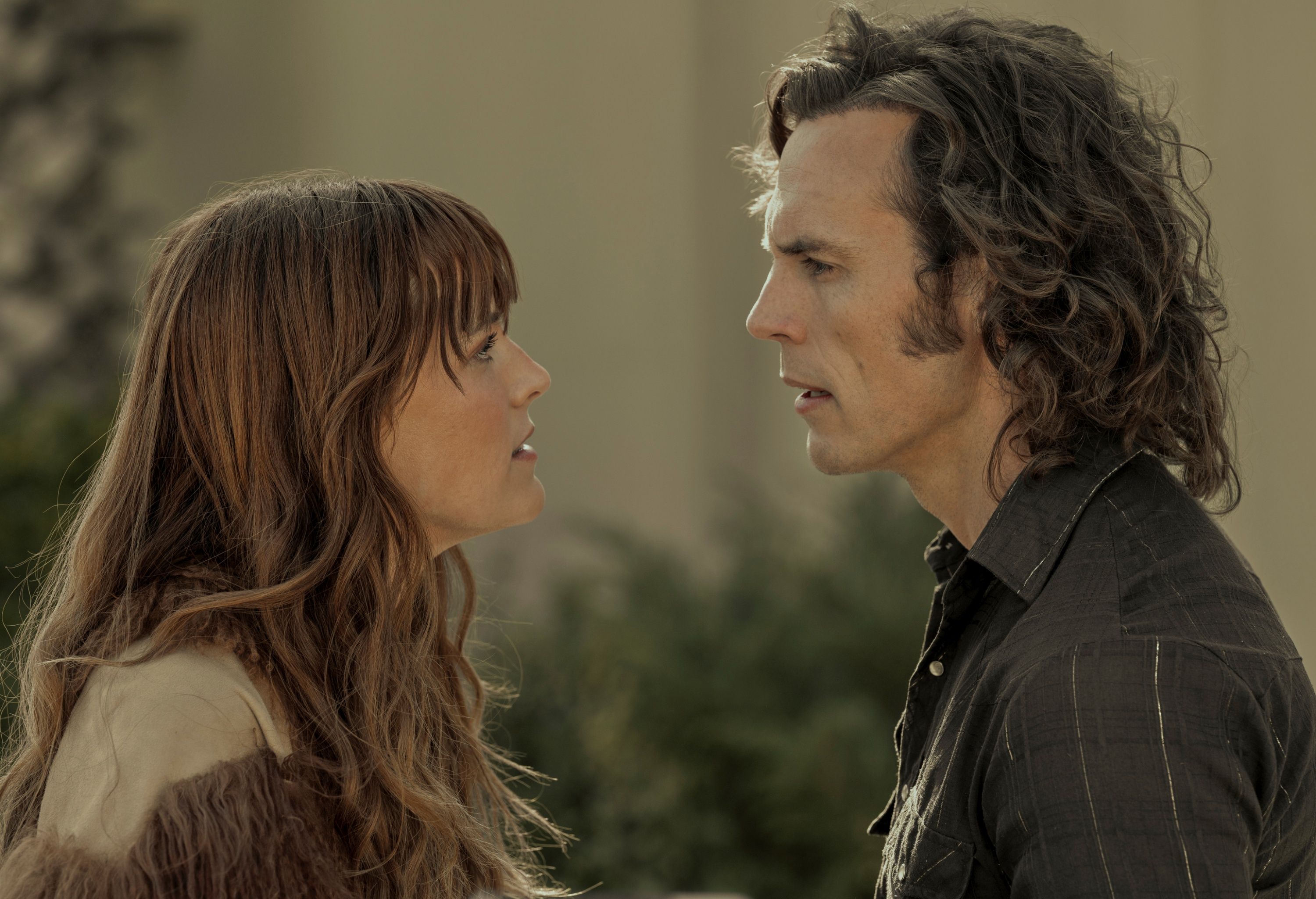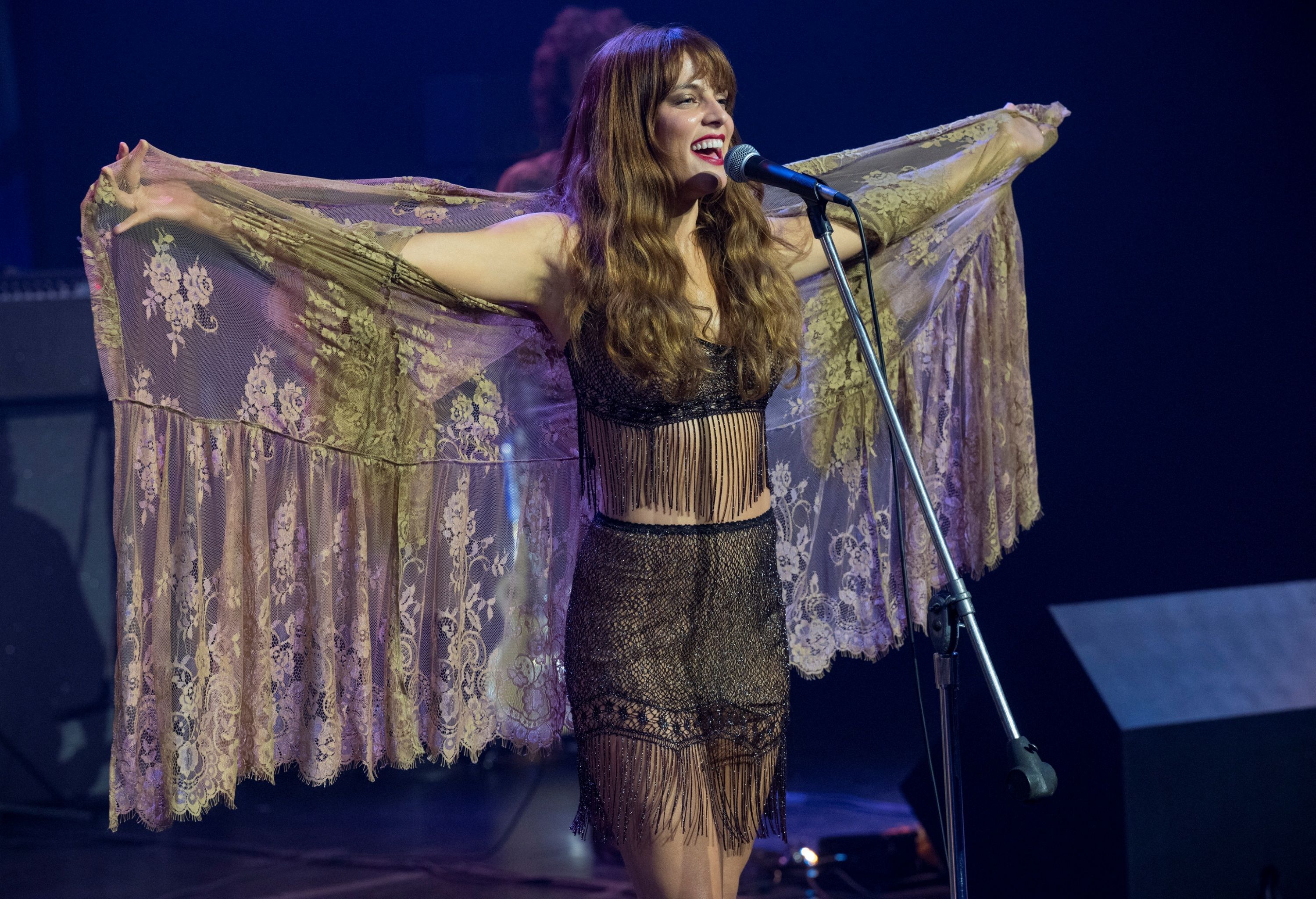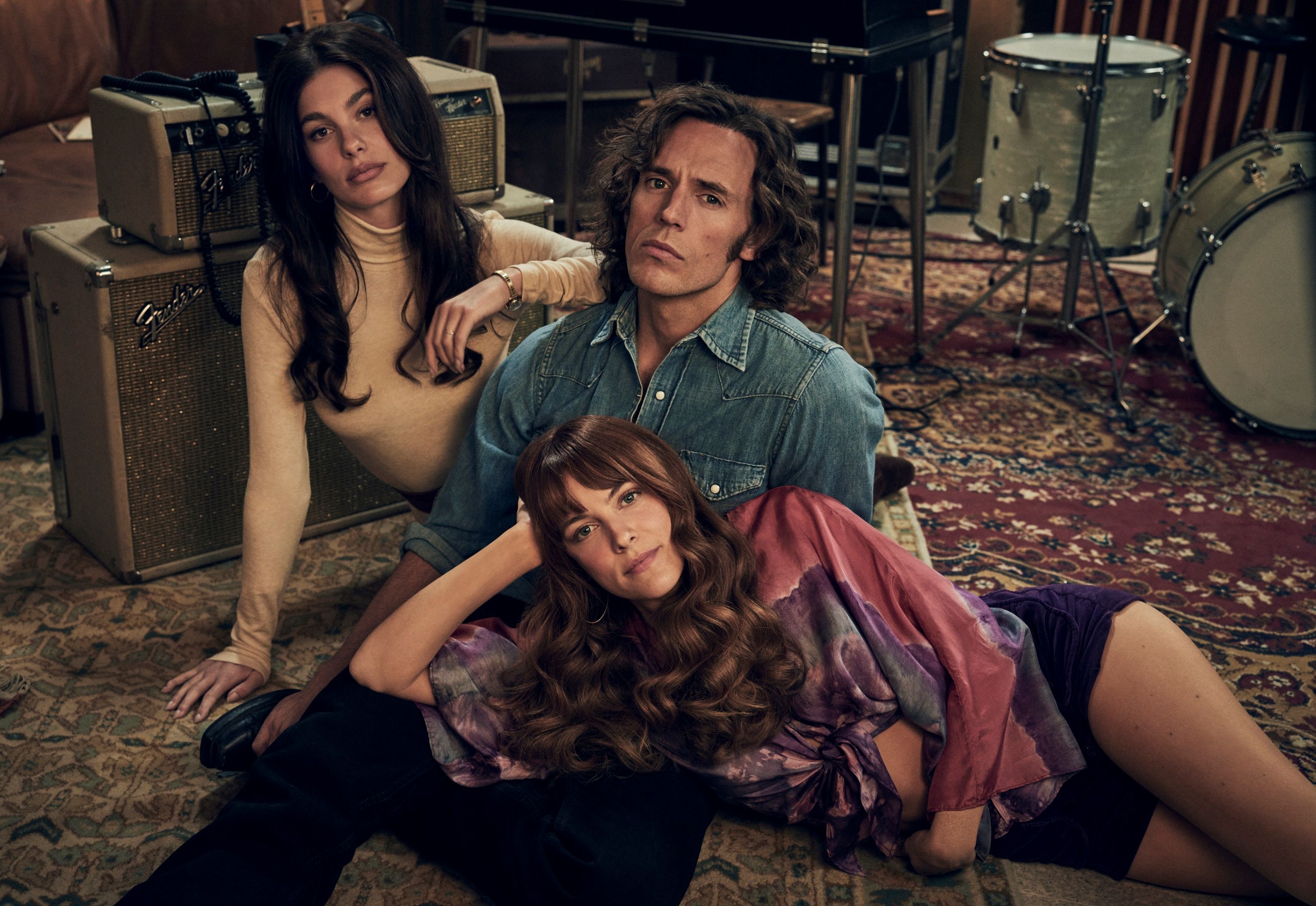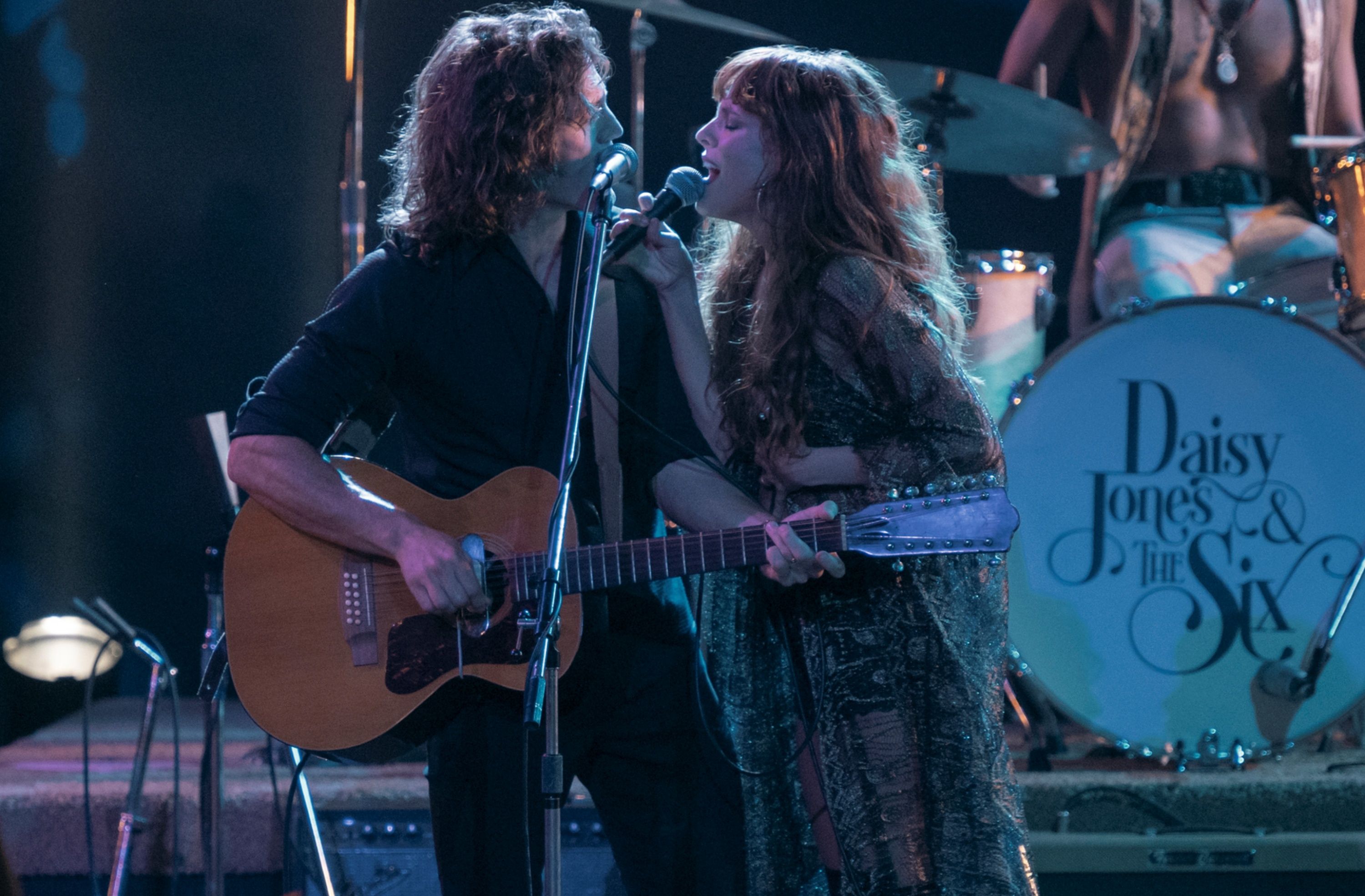[Editor’s note: The following contains major spoilers for Daisy Jones & The Six.]The Amazon Studios/Hello Sunshine series Daisy Jones & The Six tells the story of the meteoric rise and crash-and-burn implosion of the iconic 1970s band, fronted by Daisy Jones (Riley Keough) and Billy Dunne (Sam Claflin). With a combined artistry that's magic and music that works its way deep into your soul, the band finds themselves with legions of fans who love them, but that doesn't fill the holes within them, and as their personalities clash, things get toxic for everyone around them and prove to be their ultimate downfall. As their story is recounted directly by the band, personal truths bring unspoken feelings to light, and while desire and determination, and fame and success can’t always overcome it all, they might be able to heal old wounds.
During this 1-on-1 interview with Collider, Keough (whose performance is a true award-worthy standout) talked about being all-in on the role from the beginning, their first rock star moment as a band, exploring her own musical lineage, learning about the songwriting process, the importance of finding trust on set, tracking Billy and Daisy's relationship by how close they're standing together on stage, that gut-wrenching scene in episode eight, shooting the Soldier Field concert, female friendship, that final moment, and what she took home from the set.
Collider: When I read the book for this, the first thing I wondered about was how they’d ever find someone to play Daisy Jones. And then, when it was announced that you’d been cast, I was like, “Okay, that’s perfect casting.” Did you know that this was the perfect role for you, or was it something that you needed to convince yourself to do? Were you just all-in, from the beginning?
RILEY KEOUGH: I was all in, from the beginning. I just had an instinct about it. It was just something I wanted to do. It was something that was challenging. I wanted to learn, just to test myself and see if I could sing and play guitar, and all these things that felt so foreign to me, honestly. It was challenging and it was something that I just wanted to do, to see if I could accomplish.
Did you have a biggest rock star moment on set? Was there a first moment that everything really just felt like it clicked, where it was all working and where you felt confidence in it that maybe you hadn’t felt at the start of it all?
KEOUGH: We did a lot of band rehearsals at a rehearsal space, and then we moved to a bigger rehearsal space, called SIR Studios. This was after essentially a year of rehearsals, and once we got to SIR, there was a moment where we all felt like we couldn’t believe how far we’d come. And that’s not to say that we were a wonderful, perfect, amazing, flawless band, but we really got to a place that I don’t think any of us thought we could, a year before. That would have been when we were really proud.
Was this the first time that you had seriously considered exploring your own musical lineage? Are you someone who’s always been very musical at home, singing in the shower and doing things like that, or was this like the first time you’d really seriously considered doing that?
KEOUGH: I’ve been musical, in the sense that I grew up around music and I listened to music. I would mess around on the piano when I was little, but nothing serious. I didn’t really know how to play. I just messed around on the piano. I’d never played a guitar in my life. I’d never had a guitar lesson. And as far as singing goes, I would hum and I would sing with my husband, a little bit here and there. Sometimes my girlfriends and I would be sitting around, singing together. It wasn’t actually something that I had any background in, at all.
The nod to your grandfather (Elvis Presley) has been pointed out, with Daisy wearing the replica guitar strap. Was that your idea, or did someone bring that to you?
KEOUGH: That was something the art department came to me with. His name is Danny Rowe, and he came to me one day and said, “We have this cool guitar strap that all these musicians played with in the seventies, including your grandfather.” And I thought it would be cool to use, so I said, “That sounds good.” The thoughtfulness in every department on this show was incredible.
There are so many standout moments of this series. My favorite moments are the moments when you guys are writing songs together. There’s something that’s just so magical and almost mythical about the songwriting process. Do you feel like you understand any of that now, in a way that maybe you didn’t before, or does it all still feel a bit magical?
KEOUGH: One of the most fun parts of the process for me was being able to experience recording an album and watching (executive music producer) Blake Mills and everybody at Sound City in the writing and recording process. That was super fun for me, and it felt like a really unique experience that I got to have. I definitely watched my parents writing songs and stuff growing up, but that was different. When your family does things, it feels more personal. It’s just a different experience than watching other people writing songs.
Did getting the chance to watch them create the songs for this help inspire you for how to portray that for the scenes you had to do that in?
KEOUGH: Yeah. One thing that Blake did that was amazing for me is that he would sit down and tell me, like what the riff would be in the moment, or exactly what we might be saying or doing in the moment. Also, our guitar teacher, Ryan Hommel, was really useful in trying to get those moments accurate, showing us how we would actually come up with the beginning of a song, what the melodies would be that we’d be singing, and how we would write the lyrics. That was a really fun thing. It was such an asset to have these amazing musicians to talk to it.
There are aspects of this series that are joyous and fun, but there are also aspects of this that are darker and more intense. The scene in episode eight, when Billy finds Daisy passed out in the shower is just gut-wrenching to watch. What was that day like to shoot? Is that something you had to get into a certain mindset for? Do you prefer not to have conversations about something like that ahead of time?
KEOUGH: It was one of those things where you know what’s going to be happening. With those kinds of scenes, typically, I don’t like rehearsing a bunch. There are certain scenes where rehearsing lends itself beautifully, and there are certain scenes where you just have to go for it.
What was that vibe like on set? Does it just come down to the trust that you have, in your co-star and your director?
KEOUGH: Totally. That really makes all the difference for me, in performance. The more your environment is supportive and trusting and you feel like you can play and it’s not stressful, the better the performances are gonna be and the more authentic all the emotions are gonna be because you’re working with people you trust to share these things and parts of yourself with. I totally credit that to the environment, from the directors to the cast and the crew. It was such a supportive environment for everyone.
Were there conversations about how to reflect what was going on with Daisy and Billy, at any given moment, with how they were connecting while they were on stage? I love how you can tell exactly what emotions they’re having by how close they sing together. Did you guys talk about when you would be standing far apart, and when you would be singing from the same mic? Did you work a lot of that out, or did some of it come naturally, in the moment?
KEOUGH: A lot of that was worked out because it was in the script. Those moments were really important, so we worked really hard to make sure nothing was missed. A lot of Daisy and Billy’s moments are on stage, or just looks or little gestures, or sharing a mic, or their body language. All of that was thought through and rehearsed. We would always do things impulsively, in the moment, as well. That’s part of acting. But we definitely were aware of when we were meant to be friendly and not.
What was it like to shoot that Soldier Field concert? What are the memories you have about shooting that, that we wouldn’t see, just from watching that episode?
KEOUGH: My memories of that are that we were shooting overnight and we were exhausted and on adrenaline. We’d been practicing for the Soldier Field show for years, so we were just really excited to be there. I was giving everyone B12 shots, the whole week. We were shooting overnight, so the boys would come into my trailer and I would give them some B12 in their behinds. That’s definitely a memory. That was pretty funny.
This series is not just about the music, it’s not just about Daisy and Billy, and it’s not just about this band, but we get to see glimpses of female friendship, throughout the series, with Daisy and Simone, with Daisy and Karen, and with Daisy and Camila. What was it like to find those relationships and to explore how deeply they each affected Daisy?
KEOUGH: One of the wonderful things about this show is that the females are very developed. You’ve got a bunch of really complex female characters going through complicated love stories. They’re not underwritten. They’re very present and strong, and all very different. That is uncommon with female characters still, in television and movies. I love that about the show. All the characters, including the women, are super unique, and have their own voices and moral compasses, and love stories going, and nuance and heartbreaks. With Karen, Camila, and Simone, you just get a chance to see different versions of female relationships, which is true to life. They’ve all got very different relationships. Daisy has a very different relationship with Simone than she does with Camila and Karen. For Daisy, Simone is her first real friend and only real friend in her life, at the time we’re seeing her. She’s been a relatively lonely person, and Simone represents so much for her. Simone is probably the first supportive female figure in her life, at all. She’s helped her and inspires her to start performing. It’s the first healthy relationship that she has with a female. Daisy has a very complicated relationship with her mother, so she’s maybe a little more apprehensive, in general, to become close to anyone, male or female.
And her relationship with Camila is very complex. Cami and I had a hard time with a lot of our scenes because there’s just so much going on and there were so many ways to play the scenes. We had to really tread that lightly and figure out what the right tone was for every scene because we didn’t want it to feel this way or that way, too nice or too rude, or too friendly or too unfriendly. It was interesting and fun, figuring that out with Cami. I like to say you have two people who are in love with the same person because it’s not about two women feuding over a man. It’s about two people who love the same person, and that’s a challenging situation for any gender. They’re both doing the best they can and both have mutual respect for each other. Camila sees the full picture in a way that Daisy is not totally able to, but Daisy has so much respect for Camila. Daisy admires her. In many ways, Camila is everything Daisy wishes she could be, in moments. It would be an interesting dynamic to have. It’s just life. Things aren’t perfect and you can’t always control the way you’re feeling. Life can get messy, and they’re all doing the best they can, in their circumstances.
How do you feel about the place that this series leaves things with Daisy and Billy? What did you think of how this story handles things, with Camila really giving Daisy and Billy permission to find each other, after she’s gone?
KEOUGH: Those moments were so beautifully written in the book and the script, so we had a lot to work from. We just had to understand the assignment, basically, and understand where things go. Sam and I always seemed to be on the same page with the vibe in the moment. You also work off the other person, so if one person is going more emotional, you follow. And if one person is getting angrier, you follow. That’s your job, as their partner, to be in the moment and go wherever your scene partner is going.
There’s something so pure and beautiful about that final moment with the two of you smiling at each other with no dialogue.
KEOUGH: Yeah, totally. With Sam and I, we always tried different things, so there were variations of all these choices. Every moment, Sam and I probably tried a different version. We were always just on the same page with that. With the Soldier Field show, there were moments where things played out differently in the way we performed them. There were some that were more emotional, or less emotional, or more empowered. And the same goes for the last moment at the door. We played around with different versions of that, and ultimately, a director picks the one that works the best.
Because the songs in the show are so great, it’s not a surprise that people have been asking if you guys are going to tour. Obviously, the logistics of that would probably be impossible, but has doing this changed your feelings about music? Has it made you consider doing music on your own, at all?
KEOUGH: I have an appreciation for music and I certainly would do something musical, if it was the right thing. You never say never, but I can’t really see myself writing my own personal music and going on tour. I’ve sung with friends before. It’s not something that I’m actively thinking about, but I would never say never.
Did you get to keep anything of Daisy’s from the set? Do you like to keep mementos from the characters you play, or is that not something you do?
KEOUGH: I kept a jacket of hers. A lot of the stuff was borrowed or rented, or really meaningful. There was one jacket that (costume designer) Denise [Wingate] and I discussed and had made, so I got to keep that one. It was one of the collaborations Denise and I did together, so she let me have that.
When you do something like Daisy Jones, where you go in not knowing whether you’ll be able to fully pull it off, but then you not only pull it off, but you completely kill it, what does that teach you about yourself and what you’re capable of?
KEOUGH: That’s subjective, for one. But for me, with regard to the musical side of it, I like things that are really challenging and that feel really difficult. Any time you accomplish something that isn’t easy, as a human being and individual, you grow in many ways. It’s the same with acquiring skills and performances. When anything is challenging, it forces you to change and open your mind. I only see benefits from pushing yourself and doing things that seem difficult.
Your next project is Under the Bridge for Hulu, which is the first time you’re producing a series. What attracted you to that project and made you want to be in it, but also what made you want to take the next step and produce it?
KEOUGH: It was something that I hadn’t done yet. I have a production company, but we’ve just started producing films and this is our first time producing television. It felt like something that was necessary for us to have under our belt.
Was it something specific about the series that made you want to get more involved, in that way?
KEOUGH: It was the series, the writers, and the showrunners. They were all artists and writers that we loved their work. It’s a true story about a young woman who was murdered, and I think it’s a very important story to share. That was probably at the root of our choice to come on board.
Daisy Jones & The Six is available to stream at Prime Video.

